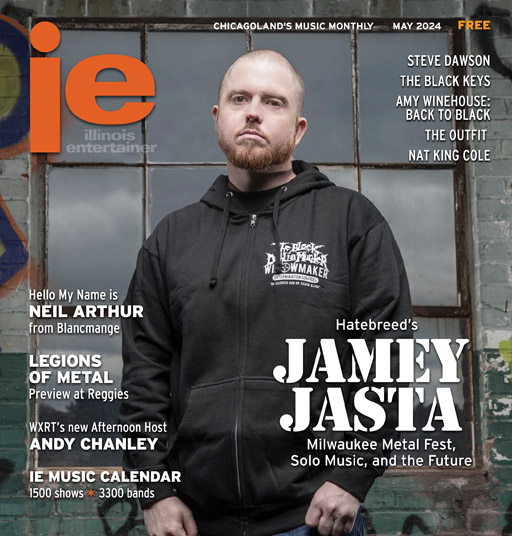Maxi Priest reviewed
Maxi Priest, Baby Cham, Calypso Rose
Washington Park, Chicago
Sunday, July 2, 2006

Always a good barometer of what’s hot and what’s not in the Caribbean community, the 15th annual African Caribbean Festival Of Life served up an interesting array of classic icons, crossover masters, and hardcore artists. Each proved their relevance and popularity with fans, but the real battle raged between old school showmanship and new jack roughness. As one overtakes the other, the question remains whether reggae will retain the elements that helped nurture it or like R&B and hip-hop, give way to something starker and more one-dimensional.
Marching out in flashing purple glasses and a black shirt festooned with red and yellow dots, his locks dangling around his thighs, Maxi Priest could never be accused of a lackluster performance. With a voice as smooth as coconut milk and a range that easily glides over high and low notes, he hardly needs any of the flash either. Opening with the mid-tempo “Should I,†the reggae crooner regaled the mostly Jamaican crowd with soaring notes while veteran DJ Red Foxx added toasts to turn the lover’s rock hit into a dancehall jam.
With the phrase, “I wanna’ hear my ladies scream!†punctuating every song, from “Just A Little Bit Longer,†to “Wild World†and “Some Guys Have All The Luck,†Maxi worked the mostly female crowd into a swaying spectacle. It’s this close association with women—and the love songs and sweet lyrics that attract them, that is both Maxi’s strongpoint and downfall. As the king of crossover reggae success, with 20 years and 10 albums that have sold more in his lifetimes than in Bob Marley’s too short life span, the British singer is often accused of watering down his music so that it bears little resemblance to reggae at all. It’s a valid point because technically his best known hits, “I Just Wanna Be Closer To You,†“Wild World†and “Just A Little Bit Longer,†are really R&B with just a dash of reggae rhythm thrown in. Since his mid-’80s start to his ’90s heyday, Maxi Priest’s albums have retained an increasingly pop feel.
But if there’s any question where his allegiance falls, the singer provided convincing evidence midway through his energetic, 45-minute set. Diving into his recent hit, “I Believe In Love†on the drop-leaf riddim, he showcased his skill at blending lover’s rock harmonies with raw drum and bass. It’s a hallmark of modern dancehall that Maxi helped forge in the ’90s with Shabba Ranks and Shaggy. A tribute to Dennis Brown brought a stirring take on “You Don’t Know What It Means To Be Loved,†with all the Jamaican roots fully intact.
After a show-stopping, version of Van Morrison’s “Crazy Love,†brimming with delicate, toe-curling, soulfulness, he turned the stage over to Redd Foxx (not the “Sanford And Son” star he was quick to point out) for a “bashment party†of his hits like “Poom Poom Shorts†and “On & On.” Following a rousing “Close To You,†Maxi continued the party with “House Call,†with Foxx doing justice to Shabba’s chants. Although he had to cut his set short when promoters rushed him off stage, it was clear Maxi Priest’s legacy remains unchallenged.
In stark contrast to Maxi’s splashy performance, the fest’s hottest star strolled onstage with little fanfare or presence. Covered in a baby blue polo and worn jeans, Baby Cham lathered the crowd up with just a few of his booming chants. A hardcore dancehall star for seven years in Jamaica, the baby-faced DJ stands poised to conquer the U.S. With a recent cover story in Fader and the first single from his upcoming album burning up dance floors, the young toaster has been billed as the ghetto antidote to Sean Paul’s slick party music.
With Jamaican flags waving and fans screaming, Baby Cham offered a totally familiar brew of homophobia, ghetto tales, and sexual innuendo. He strung the crowd along with his hits “Babylon Bwoy,†“Man and Man,†and “Ghetto Pledge.†With much of dancehall focusing on partying and his cut “Ghetto Story†being banned in Jamaica for its political content, Cham is expected to bring the original socio-political messages of roots reggae back to dancehall. Maybe he will, maybe he won’t. But judging from his performance, which relied on bravado and “realness†more than lyrical talent, it might not be the message people expect.
Still prancing and throwing out spicy remarks at 66-years old, Calypso Rose, the queen of Calypso, represents the original old school. Dressed in royal blue African robes, she danced, sang, and joked enough to outshine every performer that followed. As the first and only woman to win the Road March and Calypso titles simultaneously, she’s written more than 800 songs and captured audiences from Belize to Japan. Pumping out her classics, “Ju Ju Warrior,†“Fire, Fire,†and “Come Leh We Punta,†Calypso Rose demonstrated why she remains the queen.
In her performance of the fast-paced soca song she wrote for the Festival Of Life, she reprimanded the band, “this thing is too slow for me! I need more tempo for this tune boy!†Hailing from a time when calypsonians were required to write 12 new songs each season, Calypso Rose reflects the strong foundation all Caribbean music rests upon. Whether contemporary artists draw from that or reach for the more superficial techniques of current American music, will influence the genre’s success and longevity.
— Rosalind Cummings-Yeates
Category: Live Reviews, Weekly









